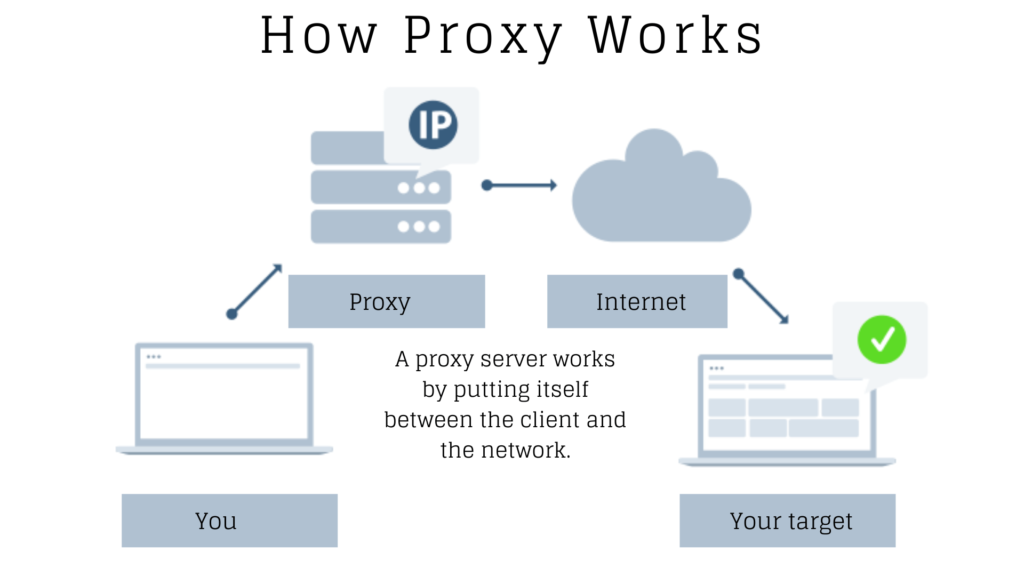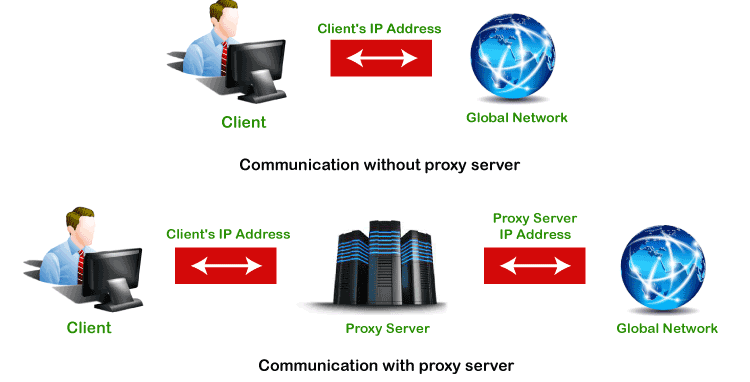In the intricate world of networking and internet communication, a crucial player often goes unnoticed—the proxy server. As a linchpin between users and the vast expanses of the web, understanding its role and functionality is paramount. This article aims to demystify the concept of proxy servers, exploring their definition, operation, and the advantages and risks associated with their usage. Whether you’re a tech enthusiast or a casual internet user, delving into the realm of proxy servers unveils a layer of complexity that shapes the way we access and interact with online content. Let’s embark on a journey to unravel the mysteries of proxy servers.
I. What is a Proxy Server?
At its core, a proxy server acts as an intermediary between a user’s device and the internet. It serves as a gateway, receiving requests from users and forwarding them to the target server. In return, the proxy relays the server’s response back to the user. This middleman role enables several functionalities, including enhanced security, privacy, and network performance. Proxy servers operate based on protocols such as HTTP, HTTPS, or SOCKS, each catering to specific use cases. Understanding this fundamental definition sets the stage for comprehending the intricate workings of proxy servers.
II. How Does a Proxy Server Operate?
The operation of a proxy server involves a series of steps, seamlessly executed to facilitate communication between users and the internet. When a user initiates a request, the proxy intercepts it, masking the user’s identity by presenting its own IP address to the target server. This process not only adds a layer of anonymity but also allows the proxy to filter content, block malicious websites, and cache data for improved performance. The intricate dance of request and response, orchestrated by the proxy server, contributes to a more secure, efficient, and controlled internet experience.
III. Why Should You Use a Proxy Server?
The utilization of a proxy server brings forth an array of benefits tailored to different user needs. For one, it enhances privacy by obscuring the user’s IP address, making it challenging for websites to track their online activities. Moreover, businesses deploy proxy servers to optimize network performance, reduce bandwidth usage, and bolster security against cyber threats. Geographically restricted content can be accessed by leveraging proxy servers in specific regions. Whether seeking anonymity, improved speed, or content access, understanding why users should employ a proxy server sheds light on its practical applications. Secure your online activities with Actproxy, the top-notch proxy server. Utilize the exclusive Actproxy Coupon Code for a 30% discount and safeguard your computer effectively.

IV. Proxy Server Risks
While proxy servers offer a myriad of advantages, they are not without their share of risks. One of the primary concerns revolves around the potential interception of sensitive data by malicious proxies. Users should exercise caution when choosing a proxy provider, ensuring it adheres to security standards. Additionally, the use of transparent proxies may compromise privacy, as they reveal the user’s IP address to the target server. Awareness of these risks allows users to make informed decisions, selecting proxy solutions that align with their security and privacy requirements.
V. Types of Proxy Servers
Proxy servers come in various types, each designed to cater to specific functionalities and user needs. The most common types include:
- HTTP Proxy: Primarily used for web browsing, this proxy handles HTTP traffic.
- HTTPS Proxy: Similar to HTTP proxies but dedicated to secure, encrypted communication over HTTPS.
- Transparent Proxy: Identifiable by target servers, these proxies offer caching and basic anonymity.
- Anonymous Proxy: Conceals the user’s IP address, providing a higher level of privacy.
- SOCKS Proxy: Supports various protocols and is versatile for different applications.
Understanding the distinctions between these proxy types empowers users to select the most suitable option based on their requirements.
Conclusion
In conclusion, a proxy server stands as a multifaceted tool shaping our digital interactions. From enhancing privacy to optimizing network performance, its impact is profound. Navigating the complexities of proxy servers provides users with a nuanced understanding of their functionalities and potential risks. Whether employed for personal privacy or integrated into business operations, the proxy server remains an indispensable component in the realm of network communication. As we continue to traverse the vast landscape of the internet, the role of proxy servers persists, silently orchestrating a seamless exchange between users and the digital world.

